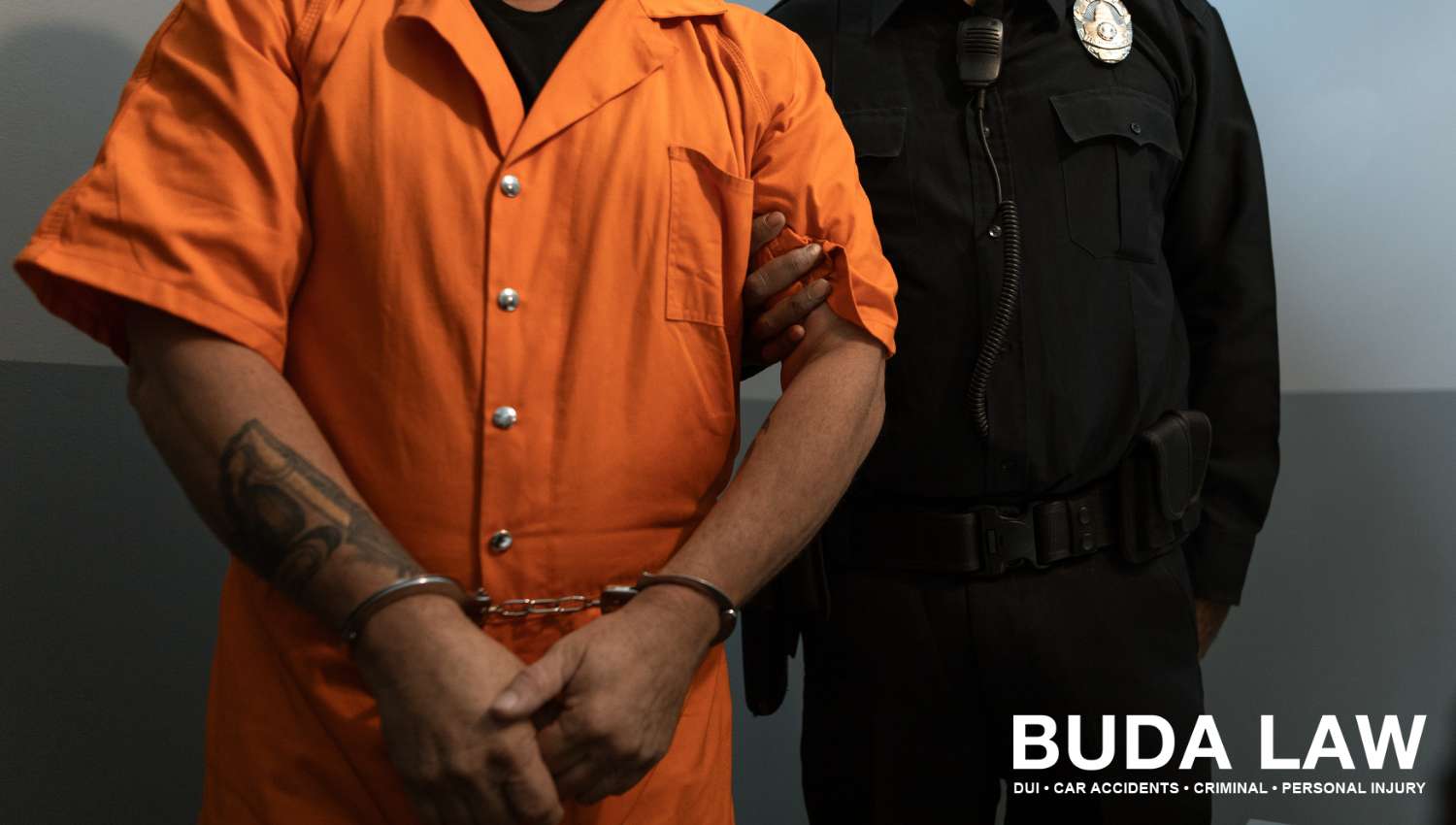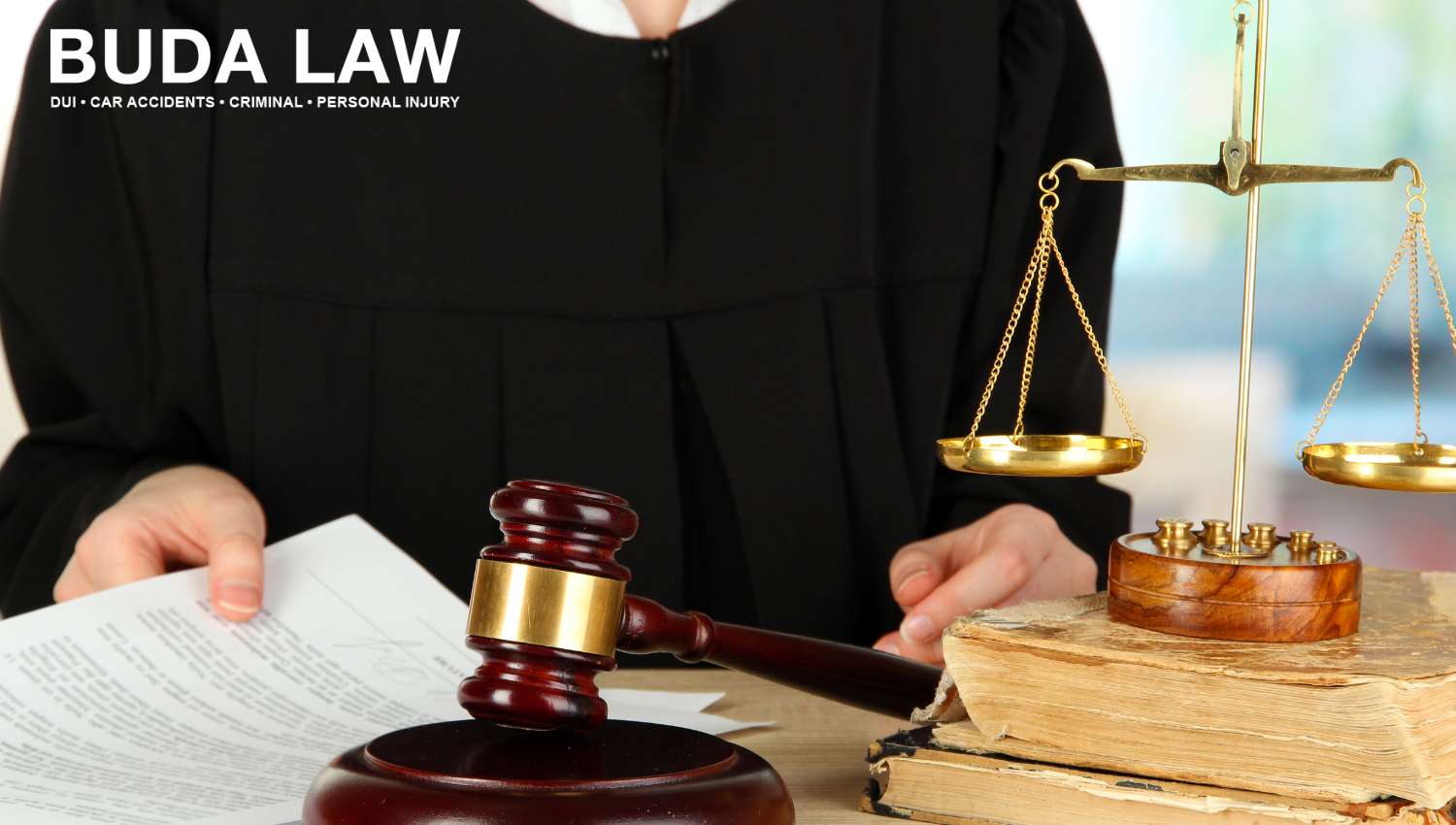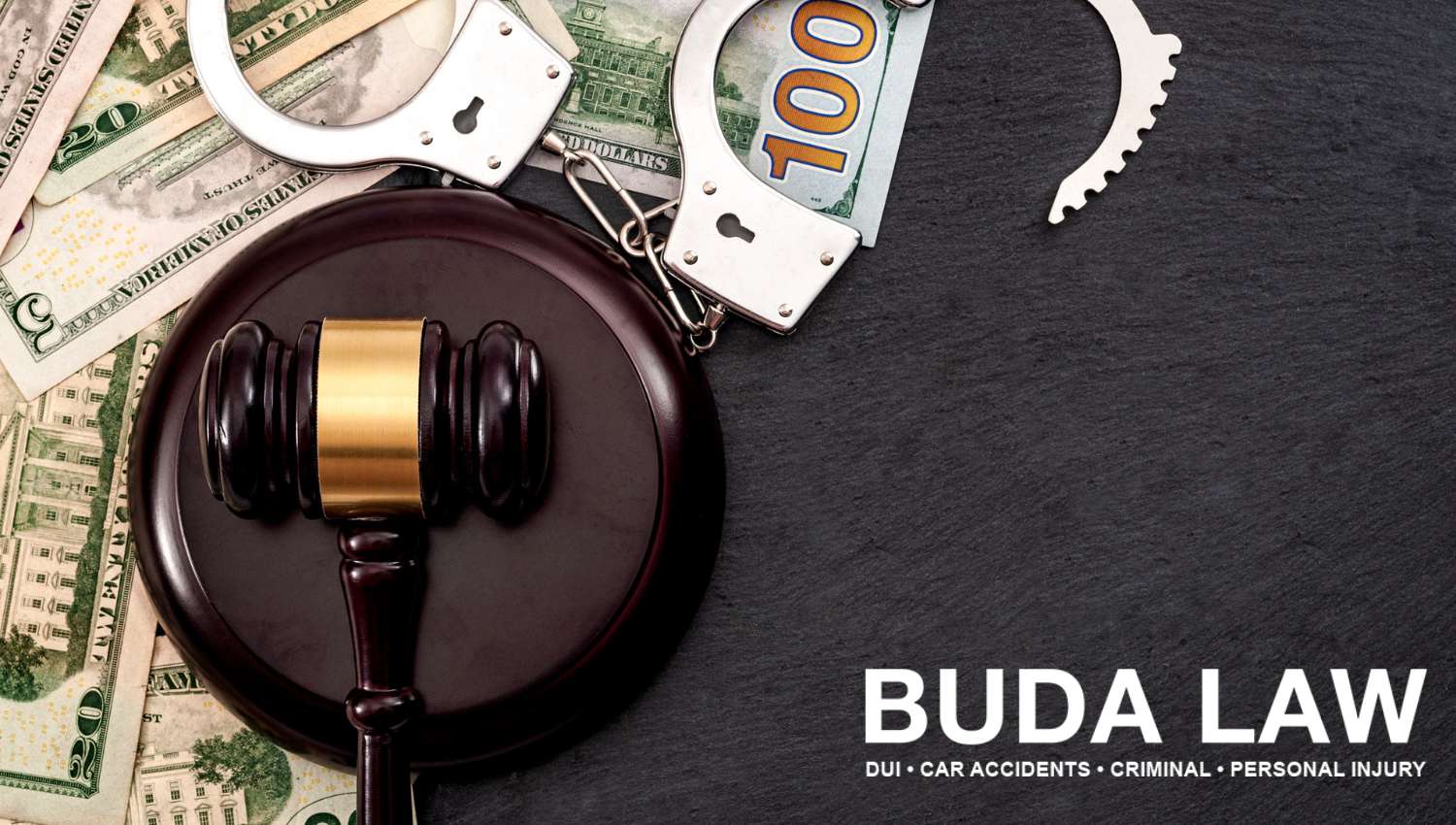Aggressively Fighting for the Best Possible Outcome
FLORIDA PRETRIAL DETENTION LAWYER
Tampa Criminal Defense Attorney for Pre-Trial Detention and Release
The idea of pretrial detention in Florida can be daunting, especially with recent legislative changes that can and likely will significantly impact defendants accused of a crime. These changes, which we will cover in detail below, underscore the importance of equipping yourself with experienced legal representation in order to understand your rights and the complex legal procedures that govern pretrial release.
At Buda Law, Tampa criminal defense attorney Andrew Buda and his dedicated legal team provide aggressive and informed defense for clients facing pretrial detention. With our comprehensive understanding of both the nuances of new laws and the broader aspects of criminal defense as a whole, we are prepared not only to fight for your release before trial but also to defend you vigorously in later court proceedings.
Our law firm regularly works with clients throughout Hillsborough County, Pinellas County, and the surrounding areas, and we are more than prepared to work with you, too.

To speak with an experienced criminal defense attorney at our Tampa-based law firm, call (813) 322-2832 or reach out online to schedule a free consultation today.
What is Pretrial Detention?
Pretrial detention refers to the period when a defendant is held in jail before court proceedings take place. Before new legislation went into effect, the court would decide if there were sufficient enough reasons to keep the accused detained to ensure they would appear at trial and to maintain public safety. Factors influencing this typically included the nature and severity of the alleged crime, the accused’s record, potential risks of fleeing, and the safety of the community.
The decision for pretrial detention was traditionally made during a first appearance hearing, where the judge would evaluate whether to set bail or detain the individual until trial at their own discretion.
What is Pretrial Release?
Pretrial release is essentially the opposite of pretrial detention. This refers to the conditions under which an individual accused of a crime may be released from custody, with or without bail, while awaiting trial. If the court has sufficient reason to believe that the defendant will appear at trial and does not pose any risk of harm to the community, they may be granted pretrial release.
The conditions for pretrial release can vary widely and may include travel restrictions, being placed under supervision, avoiding contact with certain individuals, and agreeing to electronic monitoring. If the defendant violates their pre-trial release conditions, the court has the authority to revoke pretrial release, resulting in the defendant being taken back into custody until their trial date.

Florida Pretrial Detention and Release Laws
Before House Bill 1627 (which we will cover in further detail later), the laws governing pretrial detention and release in Florida were primarily based on Florida Statutes § 907.041 and Florida Rule of Criminal Procedure 3.131. We’ll cover the context of these laws below.
Florida Rule of Criminal Procedure 3.131
Florida Rule of Criminal Procedure 3.131 covered the right to pretrial release for individuals charged with a crime. Under this law, a person charged with a noncapital offense could be released on non-monetary conditions, unless the court determined such release is insufficient to ensure the defendant’s appearance in court, protect the community, or prevent the defendant from obstructing the judicial process.
For most defendants, the rule granted the right to pretrial release on reasonable conditions. If monetary bail was considered necessary, it would be set at an amount deemed reasonable based on the specifics of the case, including the nature of the offense, the defendant’s past criminal record, financial resources, and the probability of appearing at trial.
Fla. R. Crim. P. 3.131 also outlined procedures for a first appearance before a judicial officer where the conditions of pretrial release would be determined.

Florida Statute § 907.041
Under Florida Statute Section 907.041, anyone charged with a dangerous crime in Florida would not be granted nonmonetary pretrial release at a first appearance pretrial hearing. However, the judge could still choose to release the accused under electronic monitoring or a personal promise to return to court, if the specific facts and circumstances of the case justify it.
Listed below are the types of offenses that are considered “dangerous crimes” in Florida and may therefore warrant the accused to be held without bond (unless otherwise specified by the court):
- Arson;
- Aggravated assault;
- Aggravated battery;
- Illegal use of explosives;
- Child abuse or aggravated child abuse;
- Abuse of an elderly person or disabled adult;
- Aggravated abuse of an elderly person or disabled adult;
- Aircraft piracy;
- Kidnapping;
- Homicide;
- Manslaughter;
- Sexual battery;
- Robbery;
- Carjacking;
- Lewd, lascivious, or indecent assault or act upon or in presence of a child under the age of 16 years;
- Sexual activity with a child between the ages of 12 and 17 years of age by a person with familial or custodial authority;
- Burglary;
- Stalking;
- Aggravated stalking;
- Domestic violence;
- Home invasion robbery;
- Terrorist act;
- Manufacturing illegal substances;
- Attempting or conspiring to commit any such crime; and
- Human trafficking.
Florida courts may also order their own motion for pretrial detention if it is determined that the defendant:
- Committed previous violations of pretrial release conditions;
- Has threatened, intrimidated, or injured a victim, potential witness, juror, or judicial officer, or has attempted or conspired to do so;
- Is charged with drug trafficking;
- Is charged with DUI manslaughter and poses a threat of harm to the community because they were:
- Previously convicted of a DUI offense (or any similar offense);
- Driving with a suspended driver license; or
- Previously found guilty or have had adjudication withheld for driving with a suspended or revoked drivers license.
- Was on probation, parole, or other release pending completion of sentence OR on pretrial release for a dangerous crime at the time of committing the new offense;
- Is accused of violating pretrial release conditions for the offense;
- Has ever been sentenced as a prison releasee reoffender, habitual violent felony offender, three-time violent felony offender, or violent career criminal; OR
- More than likely committed the offense in question and there are no conditions of release that can reasonably protect the community from risk of physical harm or ensure the the defendant’s presence at trial.

What Happens at a Pretrial Detention Hearing?
At a pretrial detention hearing in Florida, the court determines whether a defendant should be held in jail until their trial. This hearing typically takes place after the defendant’s first appearance if the state has filed a motion for pretrial detention.
During the hearing, the state attorney must prove beyond a reasonable doubt that pretrial detention is justified based on the risks presented by the defendant, including the likelihood of fleeing, threatening public safety, or obstructing the judicial process. They may also include considerations of the defendant’s criminal history, if any, and the nature of the alleged offense.
The defendant has the right to be represented by defense counsel and present evidence that supports their right to bond. The rules concerning admissible evidence in a formal criminal trial do not apply to pretrial detention hearings, although it still cannot violate protections provided in the United States Constitution.
Changes in Florida Pretrial Detention Law
In May 2023, Florida Governor Ron DeSantis signed House Bill 1627, which significantly reformed the laws governing pretrial detention in Florida, particularly how cases involving dangerous crimes are handled. The new law mandates that courts must file for pretrial detention for certain dangerous crimes, eliminating the option to set bail at the initial appearance.
This legislative change is likely to have far-reaching implications for the judicial process and defendants. Specifically, it restricts judicial discretion in setting bail, which traditionally allowed judges to consider a variety of factors, including the defendant’s risk to the community and the likelihood of appearing for trial. This could lead to a significant increase in the number of individuals held in pretrial detention, awaiting trial without the possibility of release.
House Bill 1627
House Bill 1627 amends Florida Statutes §§ 903.011 and 903.047 to include the updated terms for pretrial release and establishes a statewide uniform bond schedule. Beginning January 1, 2024, the Florida Supreme Court (FSC) is required to adopt this bond schedule annually.
The statute specifies that “bail” and “bond” encompass all forms of pretrial release, including monetary and non-monetary conditions. It also states that any monetary component of pretrial release may be fulfilled by a surety bond and prohibits setting different bond amounts for various forms of release.
Here are some of the key takeaways from House Bill 1627:
- Judges have exclusive authority to set, reduce, or modify a defendant’s bail.
- Local judicial circuits may set higher bond amounts for certain offenses, but must petition the FSC for approval of a lower bond amount.
- Specific scenarios where a person cannot be released before a first appearance hearing, such as being on probation, violating a restraining order, or being designated as a sexual offender.
- Considerations for determining nonmonetary conditions in addition to or in lieu of a monetary bond, as well as a list of potential nonmonetary conditions that may be imposed.
- The court may revoke pretrial release and order pretrial detention if there is probable cause determination that the defendant violated any pretrial release condition(s).
- The crimes of DUI manslaughter and BUI manslaughter, fentanyl trafficking (or anything related to fentanyl), extortion, and written threats to kill are now considered dangerous crimes.
- If a pretrial detention motion is required, the hearing must be held within 5 days of the first appearance hearing or the defendant’s arraignment.
- The defendant may request the pretrial detention order to be reconsidered at any time before their trial if it is found that information exists that was not known at the time of the originial detention hearing.

Statewide Uniform Bond Schedule
With the introduction of House Bill 1627 in 2023 came a requirement that beginning on the first day of 2024, the FSC must adopt a statewide uniform bond schedule. This refers to a standardized list of bail amounts by crime in Florida.
By implementing this uniform bond schedule, the state intends to maintain consistency in bail/bond practices and provide a set guideline for judges to determine the monetary amounts required for pretrial release.
Bail Amounts By Crime Florida
The chart below reflects the newly adopted statewide uniform bond schedule.
| BOND AMOUNT | CRIMINAL OFFENSE |
| $5,000 | Third Degree Felony involving force or threat of force against another person |
| $2,500 | Third Degree Felony not involving force or threat of force against another person |
| $1,000 | First Degree Misdemeanor involving any amount of force or threat of force against another person |
| $1,000 | First Degree Misdemeanor offense of driving under the influence OR boating under the influence |
| $750 | Second Degree Misdemeanor (second offense) of driving under the influence OR boating under the influence |
| $500 | Second Degree Misdemeanor (first offense) of driving under the influence OR boating under the influence |
| $500 | First Degree Misdemeanor not involving force or threat of force against another person |
| $250 | Second Degree Misdemeanor involving any amount of force or threat of force against another person |
| $150 | Second Degree Misdemeanor not involving force or threat of force against another person |

Held Without Bond Reasons
We know that the information provided above can be a lot to digest. In simpler terms, here are the reasons you may be held without bond in Florida until your criminal trial:
- You are arrested for a crime that Florida considers to be dangerous (which is any of the dangerous crimes listed earlier in addition to DUI manslaughter, BUI manslaughter, trafficking of fentanyl, extortion, and written threats to kill); OR
- You are arrested for a capital felony, life felony, or First-Degree Felony in Florida; AND
- The court has probable cause to believe you committed the offense; AND
- You are believed to be a flight risk and that no pretrial release conditions will stop you from putting the community at risk of harm or ensure the integrity of the judicial process.
How Our Tampa Criminal Defense Attorneys Can Help
At Buda Law, our Tampa criminal defense attorneys are well-equipped to help individuals facing pretrial detention in Florida. With a deep understanding of the current laws governing pretrial detention and release, we are prepared to craft compelling arguments to persuade the court to set bond, facilitating our clients’ release before trial. In addition to Florida courts, Attorney Andrew Buda and his team can also help secure pretrial release in federal court, as well as assist with fighting the criminal charges at trial.
Our team is dedicated to fighting for our clients’ rights to reasonable bail conditions. For almost all scenarios involving the fight for a client’s right to bond, Buda Law charges a flat fee of $1500. To learn more about how we can help with pretrial detention and release matters, we encourage you to call right away for a free consultation.

Held Without Bond? Andrew Buda Will Fight For Your Release
If you or a loved one is facing the daunting aspect of pretrial detention in Hillsborough County, Pinellas County, or the surrounding areas, don’t face it alone. Whether it’s arguing for your right to bond or addressing other criminal defense matters, Andrew Buda and his Tampa, FL-based legal team are ready and equipped to deliver the support you need to achieve the most favorable outcome.
Don’t wait—contact an experienced attorney at Buda Law right away to ensure your rights are protected and to start building a strong defense. You can reach us by phone at (813) 322-2832 or via our online intake form to set up your free initial consultation today.
CASE RESULTS
Get the Toughness of a Trial Attorney
START BUILDING YOUR CASE
Schedule a Free Consultation
WHAT MAKES OUR DEFENSE SO EFFECTIVE?
- Former State Prosecutor
- Highly Responsive & Accessible
- Result-Oriented Advocacy
- We Prepare Every Case as if it's Going to Trial
- Personal Representation Centered Around You
- Exceptional Negotiator
